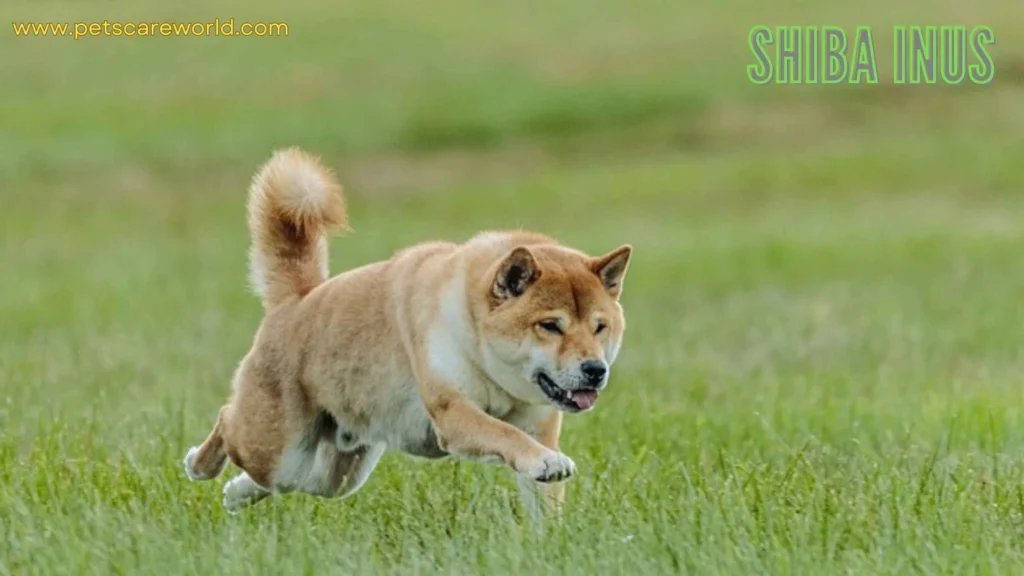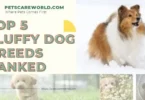Shiba Inus is a beloved dog breed hailing from Japan. Known for their spirited and independent nature, these compact and agile dogs have captivated dog enthusiasts worldwide. In this article, we will explore the history, characteristics, care, and training of Shiba Inus, shedding light on what makes them unique and cherished companions.
History of Shiba Inus
Shiba Inus has a rich history that dates back centuries in Japan. Believed to be one of the oldest native dog breeds, they were initially bred for hunting small game in the rugged mountainous regions of Japan. The term “Shiba” translates to “brushwood,” referring to the breed’s skill in hunting in dense undergrowth.
Characteristics and Appearance of Shiba Inus
Shiba Inus are a small to medium-sized breed, with males typically weighing around 23 pounds and females around 17 pounds. They have a distinct fox-like appearance, characterized by their upright ears, curled tails, and almond-shaped eyes. Their double coat is thick and plush, coming in various colors such as red, sesame, black and tan, and cream.
| Characteristic | Description |
|---|---|
| Size | Small to medium-sized |
| Weight | Males: around 23 pounds / Females: around 17 pounds |
| Appearance | Almond-shaped, dark, and expressive |
| Coat | Thick double coat, plush and dense |
| Colors | Red, sesame, black and tan, cream |
| Eyes | Almond-shaped, dark and expressive |
| Expression | Alert and intelligent |
| Body Structure | Well-muscled, agile, and balanced |
| Tail | Curled over the back |
Shiba Inus Temperament and Personality
Shiba Inus possesses a unique combination of independence and loyalty. They are known for their strong-willed and spirited nature, often displaying a cat-like aloofness. While they are generally reserved with strangers, they form deep bonds with their families and can be affectionate and loving. However, due to their independent streak, they may not always be the best choice for first-time dog owners.
Health and Maintenance of Shiba Inus
Shiba Inus are generally a healthy breed, but like all dogs, they can be prone to certain health issues. Regular veterinary check-ups, a balanced diet, and sufficient exercise are important for their well-being. They have a high prey drive and may chase smaller animals, so it’s important to keep them on a leash or in a securely fenced area. Additionally, their thick coat requires regular grooming to prevent matting and keep it in good condition.
- Regular Vet Check-ups: Schedule routine veterinary visits to monitor your Shiba Inu’s overall health. These check-ups can help catch any potential issues early and ensure they receive timely vaccinations and preventive treatments.
- Balanced Diet: Provide a high-quality, well-balanced diet tailored to your Shiba Inu’s age, size, and activity level. Consult your vet for dietary recommendations and avoid overfeeding to prevent obesity.
- Weight Management: Maintain a healthy weight for your Shiba Inu to prevent joint strain and other health problems. Regular exercise and portion control are key to keeping them in optimal shape.
- Exercise Needs: Shiba Inus are active dogs that require regular exercise to stay mentally and physically stimulated. Daily walks, playtime, and interactive games help prevent boredom and promote a healthy lifestyle.
- Grooming Routine: Brush your Shiba Inu coat at least once a week to remove loose hair and prevent mats. During shedding seasons, which happen twice a year, increase brushing frequency to manage shedding. Regular grooming also includes dental care, ear cleaning, and nail trimming.
- Dental Health: Dental hygiene is essential to prevent gum disease, tooth decay, and bad breath. Regular brushing and providing dental chews or toys can help keep your Shiba Inu’s teeth and gums healthy.
- Parasite Prevention: Protect your Shiba Inu from parasites like fleas, ticks, and heartworms. Use preventive medications recommended by your vet and keep their living environment clean to minimize the risk of infestations.
- Proper Socialization: Early and positive socialization is crucial for a well-adjusted Shiba Inu. Expose them to various people, pets, and environments to help them develop good behavior and manners.
- Training Methods: Use positive reinforcement training techniques to teach your Shiba Inu basic commands and proper behavior. Reward-based training fosters a strong bond and encourages desired behaviors.
- Mental Stimulation: Engage your Shiba Inu’s mind with puzzle toys, interactive games, and new experiences. Mental enrichment prevents boredom and helps satisfy their intelligent and curious nature.
- Temperature Sensitivity: Shiba Inus are sensitive to extreme temperatures. Keep them cool in hot weather and provide warm shelter in cold weather to ensure their comfort and well-being.
- Health Monitoring: Be vigilant for any changes in behavior, appetite, or physical condition. Early detection of health issues can lead to more effective treatment and better outcomes.
Shiba Inus Training and Socialization
Training this breed can be challenging due to their independent and stubborn nature. Consistency, positive reinforcement, and early socialization are key to successful training. They are intelligent dogs and excel in activities that stimulate their minds, such as puzzle toys and obedience training. Additionally, early exposure to various people, animals, and environments will help them develop into well-rounded and sociable companions.
Exercise and Enrichment

Shiba Inus are an energetic breed that requires regular exercise to stay physically and mentally stimulated. Daily walks, interactive play sessions, and opportunities for exploration are essential for their well-being. Mental enrichment, such as puzzle toys and training exercises, can help satisfy their intelligent and curious nature.
Feeding and Nutrition of Shiba Inus
Providing a balanced and nutritious diet is vital for the health and longevity of Shiba Inus. High-quality dog food formulated for their specific needs, considering their age, size, and activity level, should be given. It’s important to follow portion guidelines and monitor their weight to prevent obesity, which can lead to various health issues.
| Aspect | Description |
|---|---|
| Balanced Diet | Mix of high-quality dog food and fresh foods |
| Portion Control | Follow guidelines for age, weight, activity |
| Protein | Necessary for muscle health and overall well-being |
| Carbohydrates | Complex carbs for sustained energy |
| Fats | Healthy fats for coat and skin health |
| Fruits and Vegetables | Nutrient-rich additions to meals |
| Hydration | Provide clean water at all times |
| Avoid Harmful Foods | Keep chocolate, grapes, and onions away |
| Veterinary Consultation | Work with your vet to develop a suitable diet |
Shiba Inus Grooming and Coat Care
Shiba Inus have a dense double coat that requires regular grooming. Brushing their coat at least once a week helps remove loose fur and prevents matting. During shedding seasons, which occur twice a year, they will require more frequent brushing to manage the increased hair loss. Additionally, regular dental care, ear cleaning, and nail trimming should be part of their grooming routine.
Shiba Inus Common Health Issues
While Shiba Inus are generally healthy, they can be prone to certain genetic conditions. Some common health issues observed in the breed include hip dysplasia, patellar luxation, allergies, and certain eye problems. Regular veterinary check-ups and early detection of any health issues are crucial for providing the necessary care and treatment.
- Hip Dysplasia: This is a genetic condition where the hip joint doesn’t develop properly. It can lead to pain and mobility issues. Regular vet check-ups, maintaining a healthy weight, and providing joint supplements can help manage hip dysplasia.
- Patellar Luxation: This occurs when the kneecap dislocates from its normal position. Shiba Inus can be prone to this condition. Watch for limping or skipping, and consult your vet if you notice any signs. In severe cases, surgery might be needed.
- Allergies: Shiba Inus can develop allergies to environmental factors, food, or certain materials. Common symptoms include itching, redness, and ear infections. Identifying and avoiding allergens, along with medication if necessary, can alleviate discomfort.
- Eye Problems: Shiba Inus are susceptible to eye conditions like glaucoma and cataracts. Regular eye check-ups are important, especially as they age. Prompt veterinary attention can help prevent vision loss and manage eye-related issues.
- Dental Issues: Dental hygiene is crucial for Shiba Inus. Without proper care, they can develop gum disease, tooth decay, and bad breath. Regular brushing, dental chews, and professional cleanings can promote good oral health.
- Hypothyroidism: This condition occurs when the thyroid gland doesn’t produce enough hormones. It can lead to weight gain, lethargy, and skin problems. Regular thyroid testing and medication, if necessary, can help manage hypothyroidism.
- Cryptorchidism: This is a condition where one or both testicles fail to descend into the scrotum. If left untreated, it can lead to health issues. Neutering is often recommended to prevent complications and reduce the risk of certain cancers.
- Distichiasis: Shiba Inus can develop extra eyelashes that irritate the eye’s surface. This can cause discomfort and potentially lead to corneal ulcers. Regular eye exams can help detect and manage this condition.
- Seasonal Alopecia: This condition causes hair loss, often in circular patches, typically during the fall and winter. While not harmful, it can be managed with proper nutrition, light therapy, and keeping your Shiba Inu warm during colder months.
- Cushing’s Disease: This hormonal disorder can affect Shiba Inus. Common symptoms include increased thirst, urination, and appetite, as well as hair loss. If you notice these signs, consult your vet for diagnosis and treatment options.
- Regular Check-ups: To catch these health issues early, schedule regular check-ups with your veterinarian. They can perform thorough exams and recommend preventive measures to keep your Shiba Inu healthy and happy.
Being aware of these potential health concerns and staying proactive with your Shiba Inu’s care can contribute to their overall well-being and ensure a long, vibrant, and comfortable life.
Choosing a Shiba Inu
If you’re considering adding a Shiba Inu to your family, it’s important to choose a reputable breeder or consider adoption from a rescue organization. Ensure that the breeder follows responsible breeding practices, conducts health screenings, and prioritizes the well-being of their dogs. Adoption can be a fulfilling option, offering a second chance to those in need of a loving home.
Shiba Inus as Family Pets
Shiba Inus can make wonderful family pets under the right circumstances. They thrive in homes with experienced and patient owners who can provide consistent training, mental stimulation, and socialization. It’s important to teach children how to interact with dogs respectfully and supervise their interactions to ensure the safety of both the child and the dog.
Introducing a Shiba Inu to Your Home
When introducing a Shiba Inu to your home, it’s essential to create a safe and secure environment. Here are some valuable tips in bullet points for introducing a Shiba Inu to your home:
- Gradual Introduction: When bringing a Shiba Inu home, start with a quiet and controlled environment. Allow them to explore one room at a time, gradually introducing them to different areas of your home. This helps them feel less overwhelmed and adjust at their own pace.
- Safe Space: Create a designated safe space for your Shiba Inu, such as a cozy corner or a comfortable crate. Fill it with their bed, toys, and water bowl. Having a secure place gives them a retreat where they can feel safe and relaxed.
- Family Introductions: Introduce your Shiba Inu to each family member one at a time. Speak in calm and reassuring tones, allowing them to approach and sniff. Avoid overwhelming them with too many people at once.
- Pet Introduction: If you have other pets, introduce them gradually and under supervision. Use positive reinforcement and reward both animals for calm and friendly behavior. Keep initial interactions short and positive, gradually increasing their time together.
- Routine and Consistency: Shiba Inus thrives on routine. Establish a consistent schedule for feeding, potty breaks, walks, and playtime. This helps them feel secure and confident in their new environment.
- Positive Associations: Associate positive experiences with your presence. Offer treats, toys, and affection during interactions. This helps your Shiba Inu build a positive association with you and their new home.
- Training from Day One: Start basic training as soon as your Shiba Inu arrives. Use positive reinforcement techniques like treats and praise. Simple commands like “sit,” “stay,” and “come” help establish boundaries and build a strong bond.
- Socialization: Expose your Shiba Inu to various sounds, sights, and experiences early on. Take them for short walks, car rides, and introduce them to different people and dogs. Positive socialization helps them become well-adjusted and confident.
- Patience and Observation: Understand that adjusting to a new environment takes time. Be patient and observe your Shiba Inu’s behavior and body language. This helps you understand their needs and emotions better.
- Regular Exercise and Stimulation: Shiba Inus are active dogs that need physical and mental stimulation. Engage them in play, interactive toys, and short training sessions. A tired and engaged Shiba Inu is more likely to adapt positively to their new home.
- Building Trust: Building trust takes time. Be consistent in your interactions, provide love and care, and avoid any situations that might cause fear or stress. Trust is the foundation of a strong bond with your Shiba Inu.
- Professional Help: If you encounter challenges, consider seeking professional help from a dog trainer or behaviorist. They can provide guidance and support in ensuring a smooth transition for your Shiba Inu.
Common Misconceptions about Shiba Inus
Several misconceptions about Shiba Inus need clarification. While they are often compared to cats due to their independent nature, they still require social interaction, exercise, and training like any other dog. It’s also important to note that their spirited personality can sometimes translate into stubbornness during training, requiring patience and positive reinforcement.
Here are some common misconceptions about the Shiba Inus dog breed:
- Stubbornness Equals Disobedience: Shiba Inus are often labeled as stubborn, but it’s important to understand that their independence doesn’t necessarily mean disobedience. They are intelligent and may question commands, but with proper training techniques and patience, they can learn to follow instructions effectively.
- Limited Socialization: Some believe Shiba Inus are antisocial due to their reserved behavior around strangers. However, this doesn’t mean they can’t be socialized. Early and positive interactions with various people, pets, and environments can help them become more comfortable and sociable companions.
- Incompatibility with Families: While Shiba Inus have a spirited personality, they can still thrive in family settings. With the right training and consistent boundaries, they can form strong bonds with all family members, including children, making them loving and devoted pets.
- No Need for Exercise: Shiba Inus’ compact size might lead to the misconception that they don’t require much exercise. In reality, they have a high energy level and need regular physical activity to stay healthy and happy. Daily walks, playtime, and mental enrichment are essential to their well-being.
- Aggressiveness: Shiba Inus’ confident demeanor can sometimes be mistaken for aggressiveness. While they are protective of their territory, proper training and socialization can prevent aggressive behavior. They can coexist harmoniously with other pets and people when introduced and raised correctly.
- Limited Trainability: Some believe that Shiba Inus are untrainable due to their independent nature. While they may not always be eager to please, they are intelligent dogs that can learn commands and tricks with positive reinforcement methods and consistent training sessions.
- Grooming Is a Hassle: Shiba Inus’ thick double coat might seem daunting to maintain, but regular grooming doesn’t have to be a hassle. Brushing their coat helps prevent mats and keeps their fur clean. Embracing grooming as a bonding activity can also strengthen your relationship with your Shiba Inu.
- One-Size-Fits-All Approach: Assuming that all Shiba Inus have the same personality traits is a misconception. Just like any breed, individual Shiba Inus can have unique personalities and characteristics. Understanding and respecting their individuality will help foster a strong human-canine bond.
Conclusion
Shiba Inus are a unique and captivating breed that has gained popularity worldwide. Their independent and spirited nature, coupled with their striking appearance, makes them a breed cherished by dog enthusiasts. By understanding their history, characteristics, care, and training needs, you can provide a loving and fulfilling life for a Shiba Inu companion.
Frequently Asked Questions (FAQs)
1. Are Shiba Inus suitable for apartment living?
Shiba Inus can adapt to apartment living if provided with sufficient exercise and mental stimulation. However, they are an active breed that requires regular outdoor activities.
2. Do Shiba Inus get along with other pets?
With proper socialization, this breed can get along well with other pets. Early and positive introductions are key to fostering good relationships.
3. Are Shiba Inus good with children?
It can be good with children if they are raised together and proper supervision is maintained. It’s important to teach children how to interact respectfully with dogs.
4. How often do Shiba Inus need grooming?
Shiba Inus require regular grooming, including brushing their coat at least once a week to prevent matting. During shedding seasons, more frequent brushing is necessary to manage increased hair loss.
5. Can Shiba Inus be left alone for long periods?
Shiba Inus are independent dogs but still require companionship and mental stimulation. They may not tolerate being left alone for long periods and can develop separation anxiety. It’s best to provide them with interactive toys and ensure they have regular social interaction.







Leave a Comment
You must be logged in to post a comment.